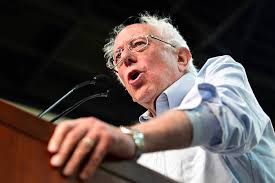
Last night, ten Democratic presidential candidates took the stage in New York City to discuss the politics of climate change. Each candidate had roughly forty minutes with only a moderator and a camera. Those moments felt like an eternity in today’s media culture. In terms of format, it was a success. Politically, it may turn out to be a disaster.
Many have been snarky about CNN’s decision to host and air yesterday’s event. Such a seven hour soirée sounds like an exercise in self-flagellation. Regardless of your feelings about the importance of climate change, or your perception of the Democratic field, this was a marked format improvement. Compared to ten candidates crowding a debate stage, mugging one another in pursuit of a live microphone, this was far better. Ratings will determine if CNN repeats this thematic approach or if other networks try something similar. I hope they do. Fora on foreign affairs or the Constitution would be fascinating and revealing.
No matter the format, or the short-term political results, Democrats will likely regret this decision. Focusing on climate change is akin to the Republicans talking for seven hours on the Second Amendment. It may play well to the core base of supporters, but it will likely harm the party’s ability to attract some key voters.
Environmental concerns in general, and climate change in particular, are not pressing public matters according to polling. Gallup surveyed voters earlier this year about the most important problems. Respondents ranked political leadership (chosen as most important by 29%), immigration (21%), the economy (14%), race relations (8%), and healthcare (7%) ahead of the environment, pollution, or climate change worries (3%). Jay Inslee’s brief candidacy, devoted almost entirely to climate change, is another small marker of the issue’s lack of salience.
The absence of public urgency does not spoil the politics of the event, but the nature of the issue does. Climate change pulls the Democratic field pretty far to the left rhetorically. Bernie Sanders seemed to consider the necessity of population control via abortion in third-world countries. Andrew Yang argued for governmental buybacks of gasoline vehicles. Nearly the entire field endorsed chunks of the Green New Deal. Kamala Harris pledged to abolish the Senate’s filibuster if the body did not act on climate problems (let’s put the rank constitutional problems with that aside for the moment) and to turn the Department of Justice onto oil and gas companies. Proposals to ban plastic straws, plastic bags, fracking, offshore drilling, and new oil and gas permits were aired. Elizabeth Warren discussed the regulation of cheeseburgers, and Andrew Yang wants the government to discourage meat consumption.
We can argue about these proposals and about the nature and potential solutions connected to climate change, but politically, these kinds of soundbites will come back to haunt the Democrats. President Trump will portray them as radicals willing to curb lifestyles and restrict freedoms to drive cars and eat steaks. He will talk of the Green New Deal’s odd fixation on cow flatulence. The President will credibly connect the Democrats to Alexandria Ocasio-Cortez, which may be good for AOC’s profile, but bad for a general election.
This is precisely the set of issues where Democrats are vulnerable to claims they will empower government beyond any reasonable expectation. Perhaps only a forum on abortion could have situated the party more poorly. Of all the candidates, only Amy Klobuchar grappled with the impossibility of moving past fossil fuels in the short term. She is mindful not only of the political obstacles in front of these proposals, but of voters in Ohio, Pennsylvania, Wisconsin, and Michigan. The voters Trump appealed to in 2016 in those pockets of the Midwest will not see the demons of fossil fuels or the wickedness of ground beef. They will see instead the specter of higher energy costs, more shuttered factories, and increasing tax burdens. It is difficult to imagine how last night’s event will help the Democrats win the presidency. Of course, it may not matter if President Trump implodes, his public approval rating continues to lag, or the economy lurches toward recession, but Democrats should be wary of appealing too exclusively to the sympathies of the Twitter Left.
 Bert Wheeler
Bert Wheeler
 Jeff Haymond
Jeff Haymond
 Marc Clauson
Marc Clauson
 Mark Caleb Smith
Mark Caleb Smith
 Tom Mach
Tom Mach